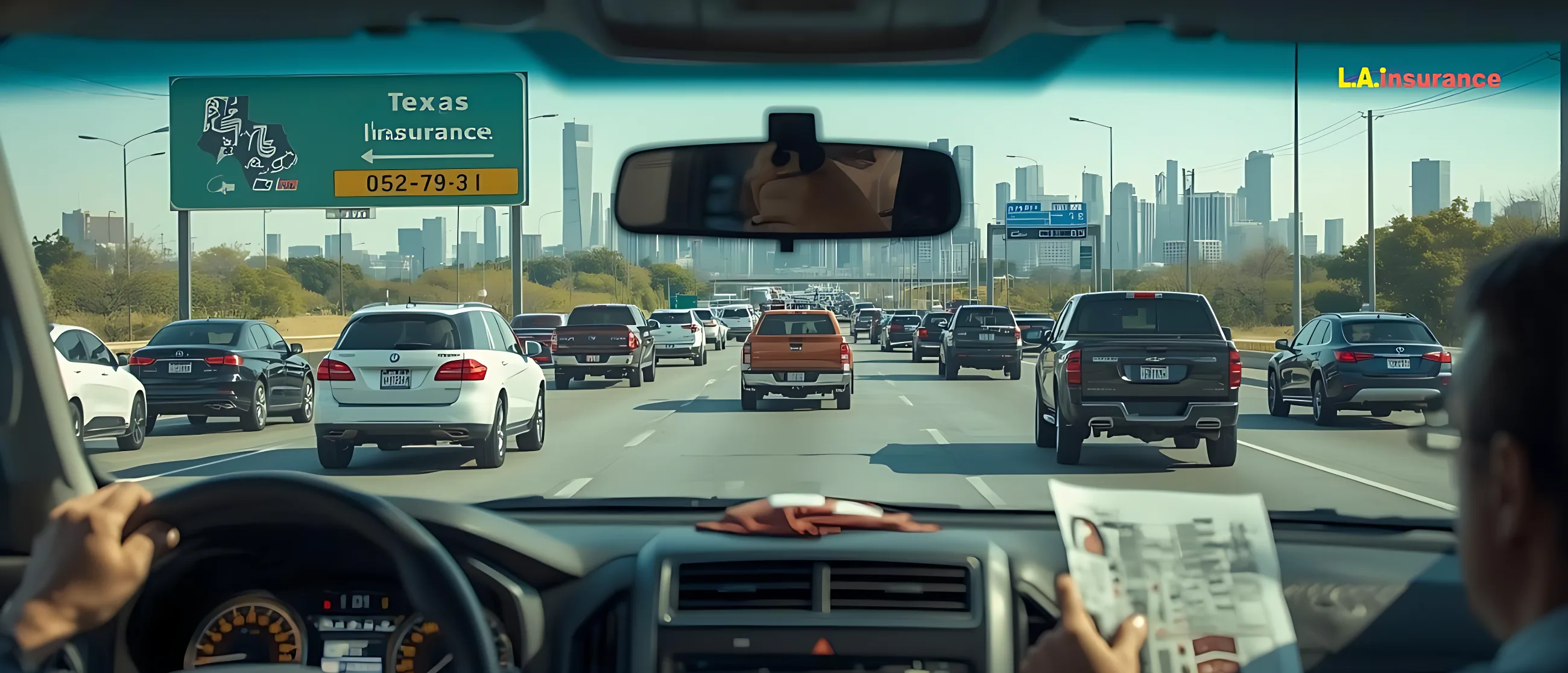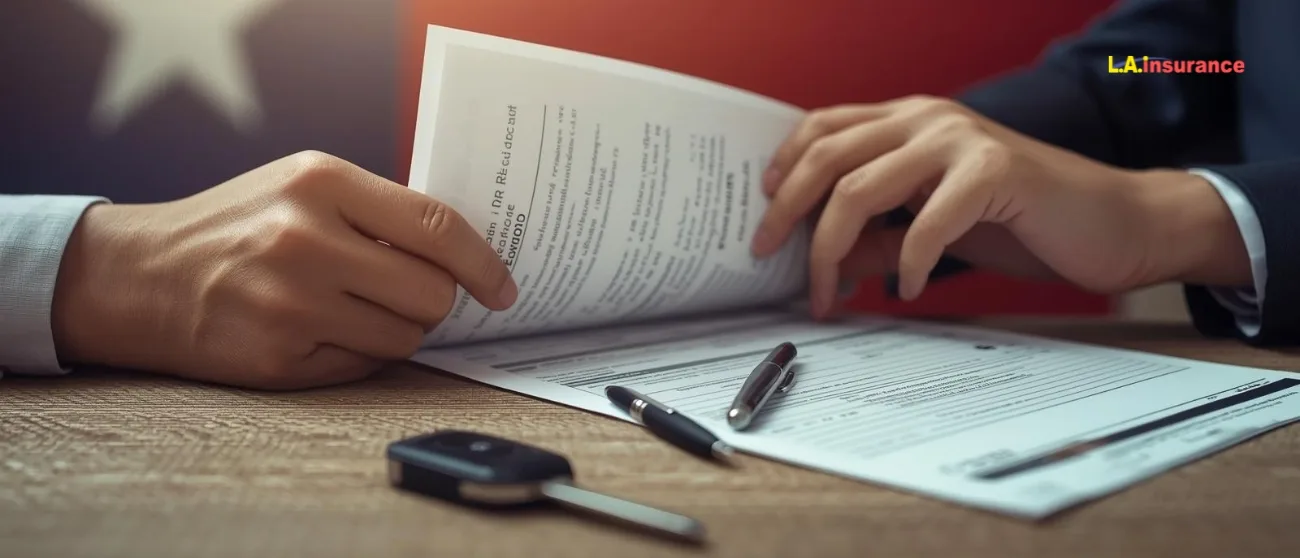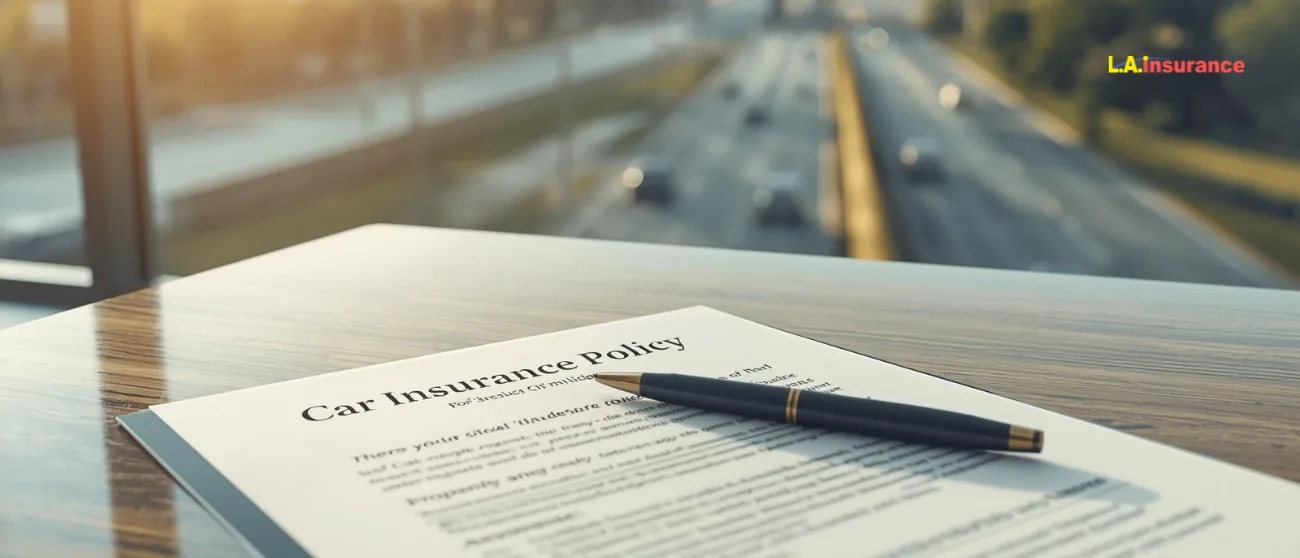
Publish Date: 01-12-2024
Auto Insurance
Last Updated: 22-02-2026
How to Transfer a Car Title in Colorado?
Transferring a car title in Colorado can be simple if you know how. But first, let’s explain to aspiring car owners what transferring the title means. Transferring a car title is a way to show who owns the car. When you sell or give a car to someone, you and the new owner have to sign a paper called the certificate of title. And this paper gets sent to your local county motor vehicle office (not directly to the state DMV), and they update their records to show the new owner’s name. So, how do you transfer the title of a car in Colorado?
To do so, you’ll need the properly signed certificate of title, a bill of sale, and proof of vehicle insurance if you’re registering it at the same time. The Colorado DMV requires specific details such as the Vehicle Identification Number (VIN) and odometer reading. Be sure to check for applicable fees, taxes, and county-specific requirements, and have all documents ready. For special cases, like transferring a title from a deceased person, additional documents are needed, such as a death certificate, small estate affidavit, or power of attorney.
Don’t Feel Like Reading a Long Article? Here’s a TL;DR:
- Collect verifiable identification, title, bill of sale, and insurance
- Fill out the title transfer section on the certificate of title
- Submit the application for the title
- Pay the title transfer fee and property tax
- Complete emission testing if applicable in your county. Check testing location wait times here.
- Visit the Motor Vehicle Office or Colorado DMV to finish the process
- Allow time roughly 4 to 6 weeks to receive the new vehicle title
- For unique cases, extra paperwork might be necessary (e.g., death certificate)
How to Transfer a Car Title in Colorado: Step-by-Step Process
A vehicle title is a legal document that proves ownership of a motor vehicle. In Colorado, the county motor vehicle office (under the Colorado Department of Revenue, Division of Motor Vehicles) oversees the process of transferring titles. If you’re dealing with a standard sale or a more complex situation like transferring a title after the death of your spouse, you should be familiar with the correct procedures.
5 Easy Steps to transfer a car title in Colorado:
- Collect Required Documents
- Complete the Title Transfer Section
- Submit the Application
- Pay the Required Fees
- Receive the New Title
1. Collect Required Documents
If you're wondering what documents you need to transfer a car title in Colorado, it's important to know what to collect before you start the process. Make sure you have all the required documents ready.
- Certificate of Title: The current title must be properly signed by the seller(s) exactly as their names appear on the title, and the buyer must also sign it.
- Bill of Sale: This document records the transaction details, including the purchase price, VIN, sale date, and both parties’ names. A bill of sale is required in some counties for tax purposes or when the purchase price is not listed on the title.
- Proof of Insurance: If you want to register your car in Colorado on the same day you decide to do a title transfer, you will need proof of insurance. Find affordable same-day car insurance at L.A. Insurance that meets the state’s minimum liability.
- Emission Testing Certificate: An emissions test may be required depending on your county and vehicle type. Counties in the Denver-Boulder metro area and Front Range generally require testing for gasoline-powered vehicles older than seven model years.
Get more insights about vehicle registration in Colorado state.
Related Article: Do I need insurance to register a car in Colorado?
2. Complete the Title Transfer Section
On the back of the certificate of title, both parties must complete the title transfer section. This includes:
- Seller’s Information: Name, Address, and Signature.
- Buyer’s Information: Name, Address, and Signature.
- Vehicle Details: VIN, Make, Model, and Year.
- Odometer Reading: Current Mileage of the Vehicle.
- Date of Sale: When the transaction occurred.
- Purchase Price: Agreed-upon amount for the vehicle.
3. Submit the Application
After completing the title transfer, the buyer must submit application for title to the local county motor vehicle office or Colorado DMV. You can complete this online or in person, depending on what you prefer. To avoid delays, make sure all your documents are secure and verified!
4. Pay the Required Fees
Fees associated with transferring a car title include:
- Title Transfer fee: Varies based on the vehicle’s value.
- Sales Tax: Calculated based on the purchase price.
- Registration Fee: If the buyer is also registering the vehicle.
Transferring a car title in Colorado usually costs $7.20. But that’s not all. You’ll also need to pay taxes and additional registration fees. Depending on the vehicle type, you may incur extra charges, such as $45 for passenger vehicles or $90 for light trucks. Specialty vehicles may have an additional $50 fee.
These fees usually depend on the following factors:
- Weight and type of your vehicle
- The county you live in
- And the license plate you choose
So, you should check with the local DMV for the exact amount. You can pay by cash, check, credit card, or debit card like master card, Visa Card, or American Express. However, some counties might charge a processing fee for credit cards.
5. Receive the New Title
Once all documents are processed and fees are paid, the buyer will receive a new vehicle title in their name. It generally takes 4-6 weeks to receive a new vehicle title in the mail in Colorado. However, this may vary in processing speed and the county office handling the request. The county motor vehicle office or the Department of Revenue’s Title and Registration Office are the usual places to submit these documents.
For details about your situation, it's best to check with your local DMV office. Some locations may have faster processing times or offer online tracking options.
Need proof of insurance in Colorado to transfer vehicle title? But facing costly insurance rates? Reading our article on why car insurance is so expensive in Colorado might help you find out cheap car insurance quote!
Special Scenarios for Transferring a Car Title in Colorado
When transferring a car title in Colorado, there are some particular cases to consider. In some cases, you'll need to provide special documentation. Each scenario, such as transfers to family members or handling a deceased person's title, requires a particular set of regulations to comply with state requirements. Let’s give you some key insights for this special scenario!
1. How to Transfer a Car Title to a Family Member in Colorado
When you want to gift a car or transfer a vehicle title to a family member, it’s simple. Both of you need to visit the DMV office together. The current owner fills out the title, sign it, and hand it over to the new owner. The new owner then submits the title, along with proof of insurance and identification, to the DMV. Fees and taxes apply, so you should check with the local DMV for the exact amount.
Note that while transferring the title to a family member, you can mark the purchase price as “$0” or “gift” on the bill of sale. But this transfer will still require an application for title and other necessary documents such as verifiable identification, odometer disclosure (If required), and proof of insurance (if required).
2. How to Transfer the Car Title of a Deceased Person in Colorado
Losing a loved one is tough, and dealing with their car title can add to stress. Anyway, for a deceased person’s motor vehicle, the transfer depends on the ownership listed on the certificate of title.
If the vehicle is only in the deceased person's name, you need to bring the following items, says the Colorado Department of Revenue:
- The death certificate.
- Letters of Testamentary, Letters of Administration, or Small Estates paperwork that shows who will inherit the vehicle. The new beneficiary can then sign the title as the new owner.
If there is joint tenancy with rights of survivorship, the surviving owner can present the death certificate and title to the DMV. In cases where the deceased was the sole owner, the estate may need to be settled through probate, particularly if there’s a lien on the vehicle. You may need a small estate affidavit or court approval, along with a power of attorney if an executor is involved. The DMV will guide you through the steps to transfer the title to the rightful heir.
3. How to Transfer Car Title from Deceased Spouse in Colorado
If your spouse has passed away and the car title was in both of your names, you’ll need to bring the death certificate to the DMV. If the title was in joint tenancy with rights survivorship, the surviving spouse automatically becomes the owner. If not, you’ll need to provide additional documents like Letters of Testamentary.
Note that in Colorado, each special case has its own state-specific title requirements and fees. Be prepared with all documents and visit your local DMV office for a stress-free and seamless title transfer process.
Final Tips for Smooth Title Transfer in Colorado
You don’t have to face any complications while transferring a car title. If you can just take a little bit of preparation, you can make the process smooth and hassle-free for you. Here are a few key tips:
- Double check all paperwork. Make sure your Vehicle Identification Number (VIN), personal details, and any middle initials, or full names match your ID exactly. Remember that even a small error can delay the process.
- Have the right documents on hand. Bring everything – your certificate of title, bill of sale, and proof of insurance. If applicable, a power of attorney form or death certificate may also be needed for special cases, like transfer from a deceased owner.
- Be prepared to pay. Know the exact fees including sales tax or processing charges, which can vary by county. Some counties allow credit card payments, but it’s wise of you if you check ahead.
- Check DMV hours and location requirements. Each DMV in Colorado might have different policies, particularly for Adams County or larger cities like Denver. Check if your local DMV requires emission testing or VIN verification for out-of-state titles.
- Use secure and verifiable identification. Colorado DMV only accepts certain forms of ID. Make sure you qualify to avoid setbacks.
- Plan for processing time. It may take a few weeks to get the new title after submitting everything. If you’re getting or selling the car, let the new owner know the expected timeline.
How Do I Transfer a Car Title in Colorado: The Bottom Line
You just need to follow a few simple steps to transfer a car title in Colorado. It would be easier for you if you were well-prepared with accurate documents. Here’s a recap for you: bring all the necessary papers, double-check every detail, and know the fees upfront. Plus, for special situations, like transferring a title after a loved one’s passing or to a family member, extra documents are required which you should be aware of.
In short, a little preparation and the right paperwork can make sure the process goes smoothly, letting you complete the title transfer with ease! On a final note, it’s recommended to call your local DMV office ahead to learn what exactly you need and how the process goes and that’s how you can keep it straightforward.
Frequently Asked Questions (FAQs)
How to Transfer a Car Title in Adams County, Colorado?
If you’re a resident of Adams County, keep in mind that the title transfer steps are pretty similar to the rest of Colorado. However, you should confirm local requirements. Adams County DMV locations may have specific operating hours or unique instructions for processing documents. Always bring verifiable identifications, proof of insurance, and any relevant documents like a bill of sale or application for title. It’s good to check if the county requires VIN verification or additional paperwork to streamline your visit.
How Do You Address Middle Initial and Middle Name in Title Transfer?
When your vehicle title or registration includes a middle initial or middle name, make sure it matches your identification exactly. Mismatches, like using a middle initial instead of a full middle name (or vice versa), can cause delays or rejections. If the title has only your middle initial but your ID has your full middle name, you might have to file an Affidavit of Correction or ask for clarification at the DMV.
Do Both Parties Have to be Present to Transfer a Car Title in Colorado?
In Colorado, both the buyer and seller do not need to be present to transfer a car title, but the title must include all required signatures from the seller, buyer, and any lienholders.
How to Sign a Car Title Over in Colorado?
To sign a car title over in Colorado, both parties should complete the title with signatures, the sale date, odometer reading, and other details, then file an “Application for Title and/or Registration” with the county’s motor vehicle office.
How Long Does It Take to Process a Car Title in Colorado?
Processing a car title in Colorado typically takes up to six weeks. However, it may vary depending on factors such as location and whether there’s a lien on the vehicle.
Do I Need Proof of Insurance to Transfer a Car Title in Colorado?
Yes, proof of insurance is required when transferring and registering your car. Since Colorado is not a no-fault state, you must carry minimum liability coverage.
Who Must Sign the Title Transfer?
The seller must sign the title to transfer ownership, and in some cases, the buyer may also need to sign.
Can I Transfer a Car Title Online in Colorado?
Colorado does not offer a fully online title transfer process; title transfers must generally be completed in person at a DMV office.
How Much Does It Cost to Transfer a Car Title in Colorado?
Title transfer fees may vary from county to county. However, you can expect to pay around $7 to $20, plus additional county-specific fees or taxes.
What Should I Do If the Car Owner Is Deceased?
If a car owner has passed away, follow these steps to transfer ownership:
- Locate Will or Estate Documents: Check if the deceased designated a beneficiary for the vehicle.
- Check for Transfer-on-Death (TOD): Some states allow direct transfer to a designated person, bypassing probate.
- Apply for Title Transfer: Submit a death certificate, proof of inheritance, or TOD, and title transfer form at the DMV.
Is an Emission Test Required for Every Title Transfer in Colorado?
In Colorado, an emission test isn’t universally required for every title transfer. The requirement depends on the vehicle’s age, fuel type, and the county where it will be registered. Emission testing is only mandatory in specific counties where air quality regulations are stricter, mainly in the Denver-Boulder metro area and parts of the front range. In these areas, vehicles that are gasoline-powered and aged between seven and more than 10 years must undergo emission testing before title transfer.
What If There Are More Than One Vehicle Owner?
When transferring a car title in Colorado with multiple owners, all must sign the title transfer. If it states “AND,” both must agree. For “OR” either can sign. If one owner is deceased, a death certificate and possibly estate documentation are needed.
Sources:
1. The Colorado government and DMV Office website comprise the majority of the sources utilized in this article
Editorial Disclaimer
The information provided on this blog is for general informational purposes only and does not constitute professional insurance, legal, or financial advice. Coverage and rates are subject to individual eligibility, underwriting guidelines, and state availability. For specific questions regarding your policy or to get an accurate quote, please contact a licensed L.A. Insurance agent directly. We're an independent agency and not a direct insurance carrier. For more information on how we operate and handle your data, please see our Terms and Conditions and Privacy Policy.
Tag :
Auto insurance
fast car insurance








